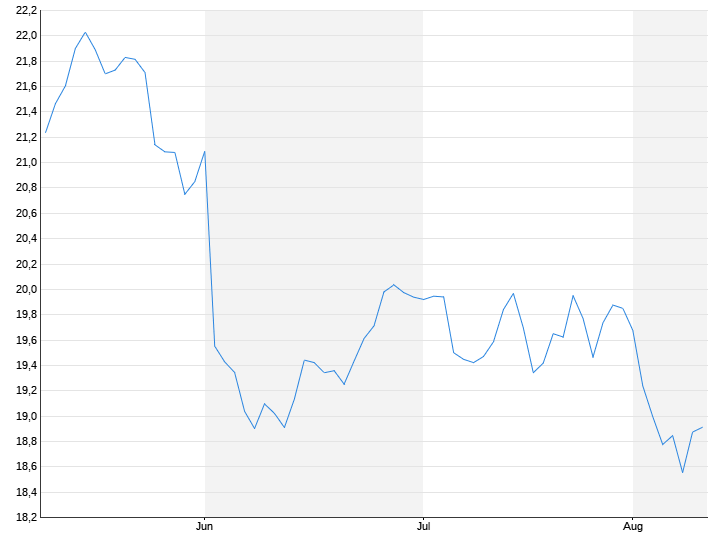Sharp criticism of regulation
Telekom threatens to shift investments
08/10/2023 6:07 p.m
For a lot of money, Telekom is laying fiber optics in the German fixed network and expanding the 5G cell phone network. “Patriotic” investments are still being made, explains company boss Höttges. But that could change soon. In essence, it is about “artificial auctions”, the proceeds of which seep away somewhere in the state budget.
Telekom boss Tim Höttges has warned federal politicians against choking off the investments urgently needed for digitization with wrong rules. “If the general conditions do not change, we will see ourselves forced to make even greater use of our opportunities abroad, particularly in the USA,” said the CEO in Bonn. In the US, sales per customer in the telecommunications industry are three times higher than in Germany. According to Höttges, investments here are hardly worthwhile, also because consumer prices are low.
Telekom is currently spending billions to lay fiber optics in the German fixed network and expand the 5G cell phone network. The earnings pearl of the Bonn group is, however, the American subsidiary T-Mobile US. One still invests “patriotically”, said Höttges with regard to domestic investments. “But we can only do that because we have the balance sheet of our American business behind us – we couldn’t invest as much if we didn’t have the enormous cash flow and enormous financial strength from the USA.”
Höttges made it clear that domestic investments could change course. “We have to look at the numbers very soberly – we are a company and it’s not about making patriotic decisions.” Rather, one must justify investment decisions to shareholders. His company has “many highly profitable opportunities to expand your business,” said Höttges, making it clear that these are not in Germany today.
“We regulate completely without addressing the issues”
Höttges’ criticism refers, among other things, to the common practice that the Federal Republic auctions mobile radio frequencies every four to five years and the network operators pay billions for this. “We regulate completely without addressing the issues.” Instead of providing the right framework for a good network expansion, the state organizes “artificial auctions that devour a lot of money, which then disappears somewhere in the state coffers, but not in the infrastructure”.
The next mobile phone auction will probably take place in the coming year. However, it is possible that there will be no auction this time, but that frequencies will be allocated and the companies will commit themselves to ambitious expansion requirements. The pending award could also lead to a so-called service provider obligation, in which mobile phone companies without their own network – such as Freenet – get access to the established networks.
Such a regulation, which is seen mostly positively by federal politicians and could boost competition, is a red rag for the manager – he doesn’t want his company to have to let competitors use its own cell phone network, which is expensive to build. The service provider obligation would have negative consequences for the expansion intensity in Germany, the company boss warned. According to his description, the high investments in the network would be devalued if the competition could boast the same network on the market. The network operator would get rent, but according to Höttges it would be too low. “It’s not good for the market as a whole, it’s only good for the service provider.”
